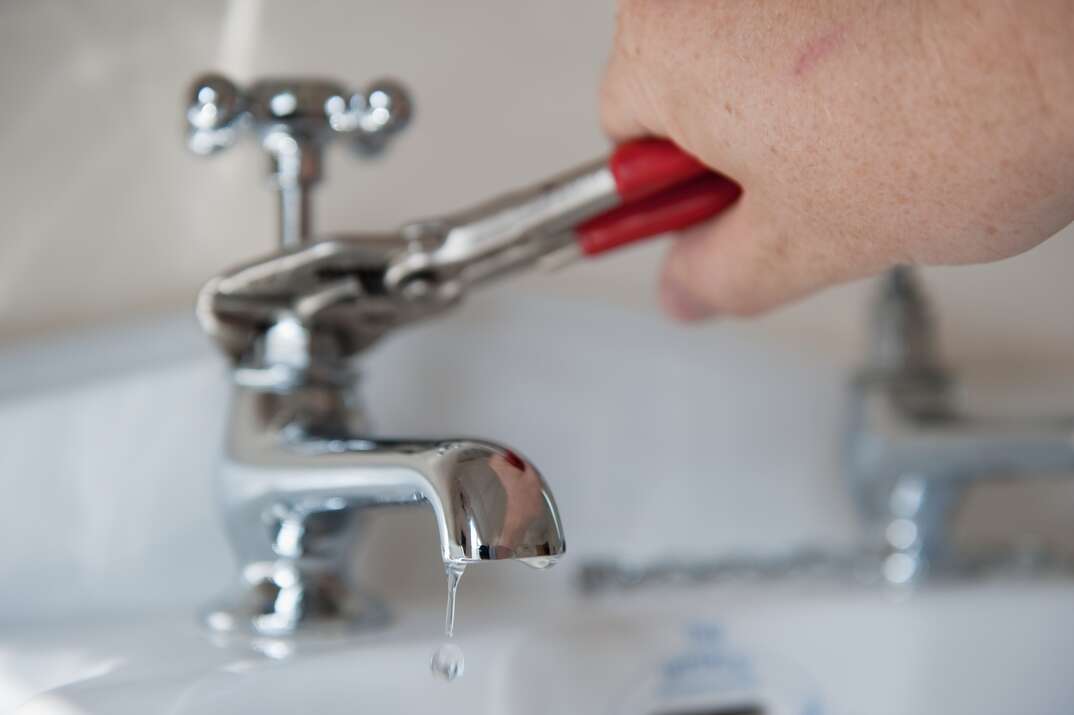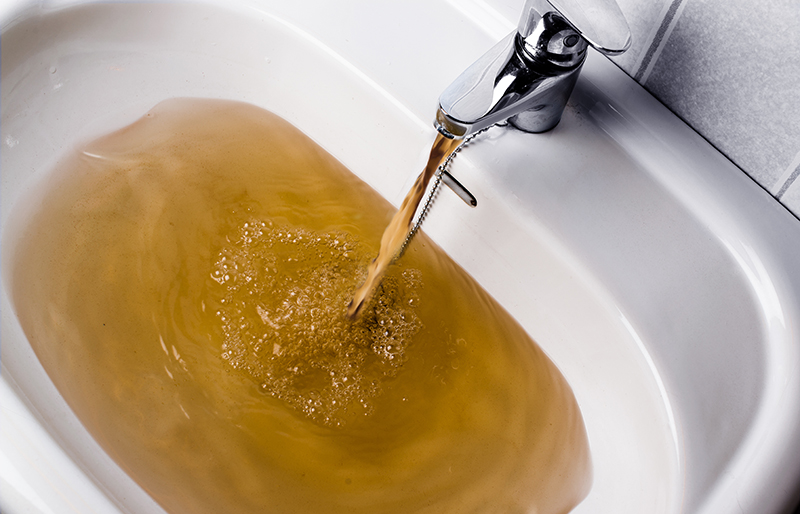Quieting Noisy Plumbing Effectively
Quieting Noisy Plumbing Effectively
Blog Article
How do you feel on the subject of Diagnose Unwanted Plumbing Noises?

To diagnose noisy plumbing, it is necessary to figure out very first whether the undesirable audios occur on the system's inlet side-in various other words, when water is transformed on-or on the drainpipe side. Sounds on the inlet side have actually differed causes: too much water stress, used valve and faucet components, incorrectly attached pumps or various other appliances, improperly positioned pipeline bolts, and plumbing runs consisting of way too many limited bends or various other restrictions. Noises on the drain side normally originate from inadequate area or, similar to some inlet side sound, a format having limited bends.
Hissing
Hissing noise that occurs when a tap is opened a little usually signals extreme water pressure. Consult your regional public utility if you presume this problem; it will certainly be able to inform you the water pressure in your area as well as can set up a pressurereducing shutoff on the incoming supply of water pipeline if essential.
Thudding
Thudding noise, frequently accompanied by shivering pipes, when a tap or home appliance valve is shut off is a problem called water hammer. The noise and also vibration are brought on by the reverberating wave of stress in the water, which suddenly has no location to go. Occasionally opening a shutoff that releases water quickly into an area of piping containing a limitation, joint, or tee installation can produce the exact same problem.
Water hammer can generally be healed by installing fittings called air chambers or shock absorbers in the plumbing to which the problem valves or faucets are linked. These gadgets permit the shock wave created by the halted flow of water to dissipate in the air they include, which (unlike water) is compressible.
Older plumbing systems may have short vertical sections of capped pipe behind walls on tap competes the very same objective; these can eventually loaded with water, minimizing or damaging their effectiveness. The cure is to drain the water system totally by turning off the major water supply valve as well as opening all faucets. Then open the primary supply valve as well as close the taps one at a time, beginning with the faucet nearest the shutoff and finishing with the one farthest away.
Chattering or Shrieking
Intense chattering or shrieking that occurs when a shutoff or faucet is turned on, which usually vanishes when the installation is opened fully, signals loose or malfunctioning inner parts. The service is to change the shutoff or tap with a new one.
Pumps and home appliances such as cleaning makers and also dishwashers can transfer electric motor sound to pipelines if they are improperly connected. Link such products to plumbing with plastic or rubber hoses-never inflexible pipe-to isolate them.
Other Inlet Side Noises
Creaking, squeaking, scratching, snapping, as well as tapping normally are brought on by the development or tightening of pipelines, usually copper ones providing warm water. The noises happen as the pipes slide against loose fasteners or strike nearby residence framework. You can often determine the area of the issue if the pipes are revealed; simply adhere to the sound when the pipelines are making sounds. Most likely you will find a loosened pipeline wall mount or an area where pipes exist so near to floor joists or other framing items that they clatter versus them. Affixing foam pipeline insulation around the pipes at the point of get in touch with ought to fix the problem. Be sure bands as well as hangers are secure and also provide sufficient support. Where feasible, pipeline bolts need to be attached to enormous architectural components such as foundation walls rather than to mounting; doing so lessens the transmission of vibrations from plumbing to surface areas that can intensify and transfer them. If connecting bolts to framework is inescapable, wrap pipes with insulation or other durable material where they call bolts, and also sandwich completions of brand-new bolts in between rubber washing machines when mounting them.
Correcting plumbing runs that experience flow-restricting tight or numerous bends is a last resort that ought to be undertaken just after speaking with a competent plumbing specialist. Regrettably, this scenario is relatively common in older homes that may not have actually been developed with indoor plumbing or that have actually seen a number of remodels, particularly by beginners.
Drain Noise
On the drainpipe side of plumbing, the chief objectives are to get rid of surface areas that can be struck by falling or hurrying water as well as to shield pipes to have inevitable audios.
In new building and construction, bathtubs, shower stalls, commodes, and wallmounted sinks as well as containers should be set on or versus resistant underlayments to reduce the transmission of noise via them. Water-saving toilets and faucets are much less loud than conventional models; install them rather than older kinds even if codes in your location still allow using older fixtures.
Drainpipes that do not run vertically to the basement or that branch into straight pipeline runs sustained at flooring joists or various other mounting present especially bothersome noise problems. Such pipes are huge sufficient to radiate considerable resonance; they likewise bring significant quantities of water, which makes the situation worse. In new building and construction, specify cast-iron soil pipes (the large pipelines that drain pipes bathrooms) if you can afford them. Their enormity consists of much of the sound made by water going through them. Also, stay clear of directing drainpipes in wall surfaces shared with rooms and areas where people collect. Walls consisting of drainpipes must be soundproofed as was described earlier, making use of double panels of sound-insulating fiberboard and also wallboard. Pipes themselves can be wrapped with unique fiberglass insulation created the purpose; such pipes have a resistant plastic skin (often containing lead). Results are not constantly acceptable.
Pipe Down! What to Do About Noisy Water Pipes
Banging
Does it sound like someone's hitting your pipes with a hammer every time you run water? The issue could be a phenomenon called water hammer, which happens when a water valve closes suddenly. You'll often hear it when your washing machine stops filling, for example. The momentum and pressure from the water flowing toward the valve create the shockwave that causes the banging noise when the valve closes suddenly. It might not seem like a big deal, but water hammer can cause damage to your pipes, including leaks and joint damage.
One way to ease water hammer is by installing water hammer arrestors. Your plumber can install them near major valves to help cushion the shock of the water when it suddenly stops or changes direction. You might also need to reduce the water pressure coming into your home with the pressure-reducing valve.
Gurgling
Gurgling sounds typically come from drainpipes. This sound happens when the water can't drain properly, usually when there's a clog in the water pipes. Drain clogs often happen due to hair, grease, soap scum or objects that fall down the drain. They can happen suddenly or build up slowly over time.
You can sometimes clear a clogged drainpipe with a plunger to help force the clog through the pipe. A plumbing snake or an auger can also help break up tough clogs. A common plumbing myth is that chemical drain cleaners are safe and effective, but they often don't work and contain harsh chemicals that can hurt you and your plumbing. If you can't remove the clog with a plunger or snake, it's best to call a plumber to help.
Rattling
Water travels through your pipes with lots of pressure, so the pipes are bound to move a little. Pipes should be secured well to keep them from moving too much when water runs through them. If they're not properly fastened or the fasteners come loose, you might hear them rattling when you run water.
Resecuring the pipes can cut down on the rattling noise and prevent damage to the joints of the water pipes. However, many pipes run behind walls where you can't easily access them. A plumber can help determine if loose fasteners are the cause of the rattling and resecure them if necessary.
Humming
If your pipes sound like they're humming, it's likely a water pressure issue. When the water pressure is high, it can cause the water pipes to vibrate and create a humming sound. High water pressure is more common if you have a well for your water, but it can happen with municipal water as well. High water pressure can damage your plumbing and cause leaks.
If you have a well, check the pressure to ensure it's below 55 pounds per square inch. A plumber can test the pressure for you and help adjust the issue if you're not sure how to do it yourself. If you're connected to the municipal water source, your home likely has a pressure-reducing valve near where the water enters your home. You can adjust the screw in the valve to decrease the pressure, but be careful not to lower it too much.
Squeaking
Squeaking or squealing is another common sound you'll hear in your water pipes. This often happens if small components within the plumbing, such as washers or aerators, become loose, dirty or damaged. When this is the cause, the squeaking sound is usually confined to a certain fixture or area of plumbing. Replaced or repairing the part should solve the noise.
If you can hear the squealing sound everywhere in your home, it could be an issue with water pressure. Buildup in the pipes narrows the space for the water, which can cause squealing as the water tries to squeeze through the pipes. Wear and tear on the plumbing system can also cause whistling or squeaking. These situations typically require a professional plumber to diagnose and repair.
https://www.homeserve.com/en-us/blog/home-improvement/water-pipes-making-noise/

Hopefully you liked our piece about Why Do My Plumbing Pipes Make A Knocking Noise. Thanks a ton for taking a few minutes to browse our blog. So long as you liked our blog posting plz don't forget to pass it around. Many thanks for your time. Visit again soon.
Website Report this page